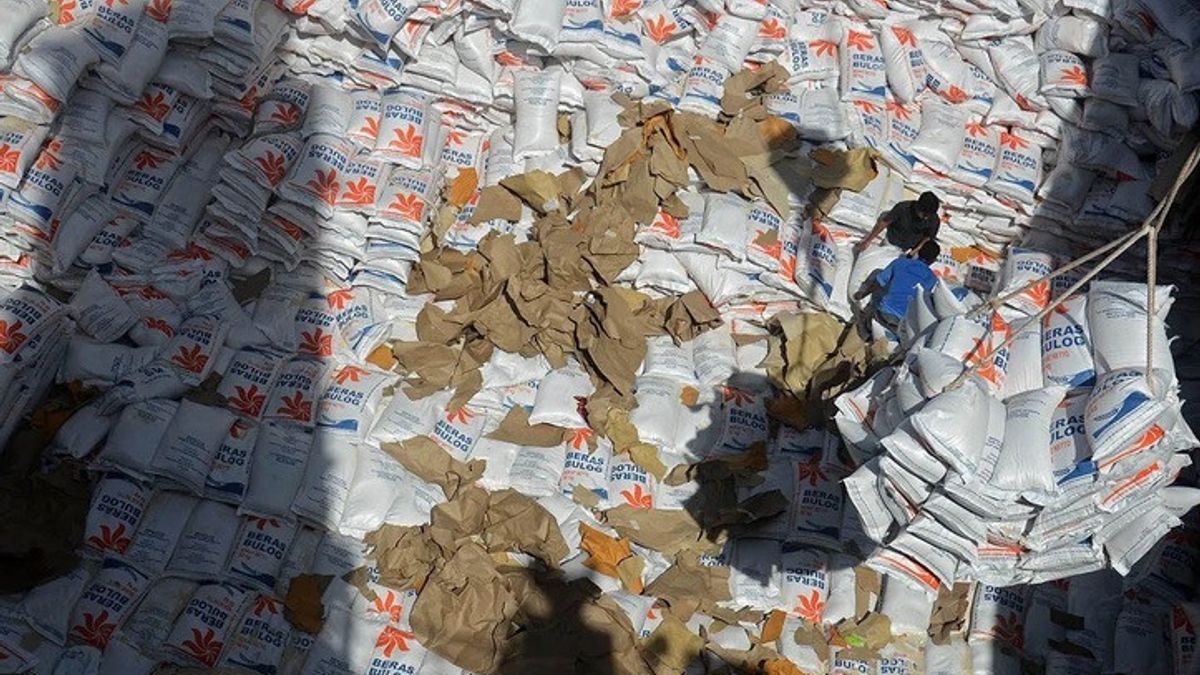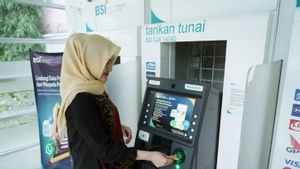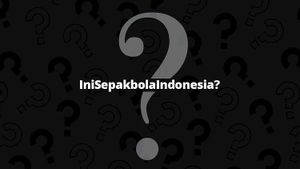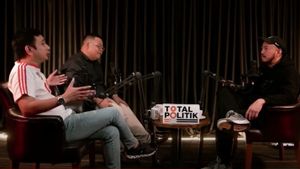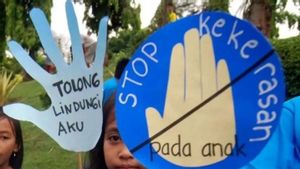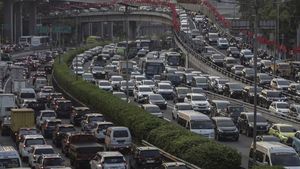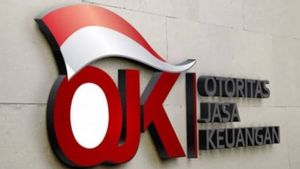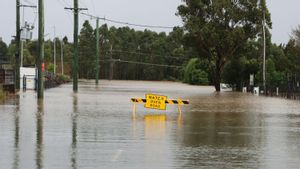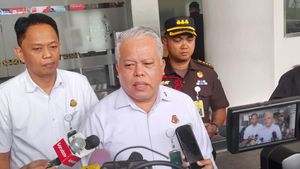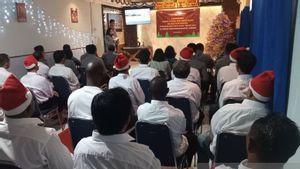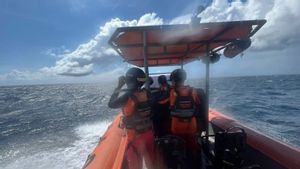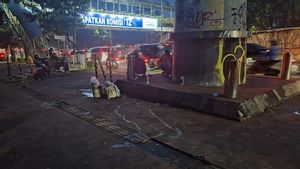JAKARTA Acquiring rice sources from Cambodia is claimed to provide a number of benefits, but this is also not a long-term solution to maintaining national food security.
Coordinating Minister for Maritime Affairs and Investment (Menko Marves) Kuhut Binsar Pandjaitan said the Logistics Affairs Agency (Bulog) would acquire a number of rice sources in Cambodia. Luhut said that this acquisition was the order of President Joko Widodo.
"Bulog will also acquire several sources of rice in Cambodia. The President has ordered me to follow up," Luhut said on the sidelines of attending the 52nd Anniversary of the Indonesian Young Entrepreneurs Association (Hipmi) in Jakarta, Monday.
Jokowi referred to Bulog's investment in Cambodia as part of an effort to ensure rice reserves.
"That is a business process that will be carried out by Bulog so that it provides certainty that our country's rice reserves are in a safe stock position. Instead of buying, investment is better," said Jokowi.
Maintaining price stability and rice stocks are challenges faced by Indonesia, especially in the past year. In fact, self-sufficiency in rice is one of the important goals to ensure food security and economic stability.
What is the power, to achieve self-sufficiency in full is still a challenge. Various obstacles such as low land productivity, climate change, and agricultural land fragmentation are said to be the rare and expensive causes of rice lately.
The issue of scarcity and high price of rice was also brought to the political realm, through the news that said this was due to the distribution of social assistance aka social assistance ahead of the 2024 General Election.
In March 2023 or in the month of Ramadan, Indonesia imported 567.22 thousand tons of rice. The volume of rice imports increased by around 921.51 percent compared to the volume of imports in March 2023 or on an annual basis. Compared to February 2024, rice import volume rose 29.29 percent.
The majority of rice imports in March 2024 came from Vietnam at 286.26 thousand tons, Thailand at 142.65 thousand tons, Myanmar at 76.61 thousand tons, Pakistan at 61.57 thousand tons, and India at 100 tons.
In the midst of this situation, Jokowi threw ideas to acquire rice sources from other countries, such as Cambodia. According to Syaiful Anwar, Lecturer at the Faculty of Economics and Business, Andalas University, Payakumbuh Campus, said that the acquisition of rice sources in Cambodia could be seen as a risk diversification strategy and efforts to stabilize rice supply.
According to data from the Food and Agriculture Organization (FAO), rice production in Cambodia will reach more than 10 million tons in 2021 with increasing exports.
"Camboja is known as one of the countries producing rice with quite high productivity and the price is relatively cheaper than Indonesia," Syaiful Anwar wrote in a column in Kompas.
Syaful observed a number of advantages if Indonesia acquired rice sources in Cambodia, including ensuring a more stable supply of rice, helping control rice price inflation in the Indonesian domestic market, and diversifying supply.
"Relying on rice from various sources can reduce the risk of dependence on one market or one producing country, which can have a positive impact on national food security," he explained.
However, acquiring rice sources in Cambodia is not without challenges and risks, one of which is dependence on rice imports. Therefore, this project is considered not a reliable long-term solution to achieve self-sufficiency in rice in Indonesia. Dependence on imports carries a significant risk that can hinder food independence goals.
Syaiful emphasized that the government should focus on increasing domestic productivity, reforming agricultural policies, and diversifying crops as more sustainable and effective steps to achieve rice self-sufficiency.
"With this approach, Indonesia will not only increase rice production but also strengthen food security and improve the welfare of farmers as a whole," he said.
SEE ALSO:
In addition to the Bulog acquisition plan, Luhut also revealed that Pertamina plans to acquire a Brazilian sugar and bioethenol supply company. In the future, the government plans to use bioethenol as a substitute for gasoline for motor vehicle fuel.
BUMN observer from the Datanesia Institute Herry Gunawan urged the government to develop domestic rice and sugar centers rather than carry out outside acquisitions. According to Herry, this is actually not a difficult problem, but the government's political will.
"The rice the company wants to acquire in Cambodia, then the sugar and bioethenol companies in Brazil, we can do all of that here," said Herry.
Herry said the government had a weak commitment, as evidenced by agricultural land which continued to decrease due to its conversion into factories, housing, and others, thereby reducing productivity. As a result, the contribution of the agricultural sector to the economy also weakened.
BPS data for the first quarter of 2024 explained that the agricultural sector's contribution to the national economy remained 11.61 percent. Whereas in 2014 it was still around 13.31 percent. This data shows that the government is not serious about food security.
"Now, how come you want to acquire companies abroad. Strange," said Herry.
The English, Chinese, Japanese, Arabic, and French versions are automatically generated by the AI. So there may still be inaccuracies in translating, please always see Indonesian as our main language. (system supported by DigitalSiber.id)
